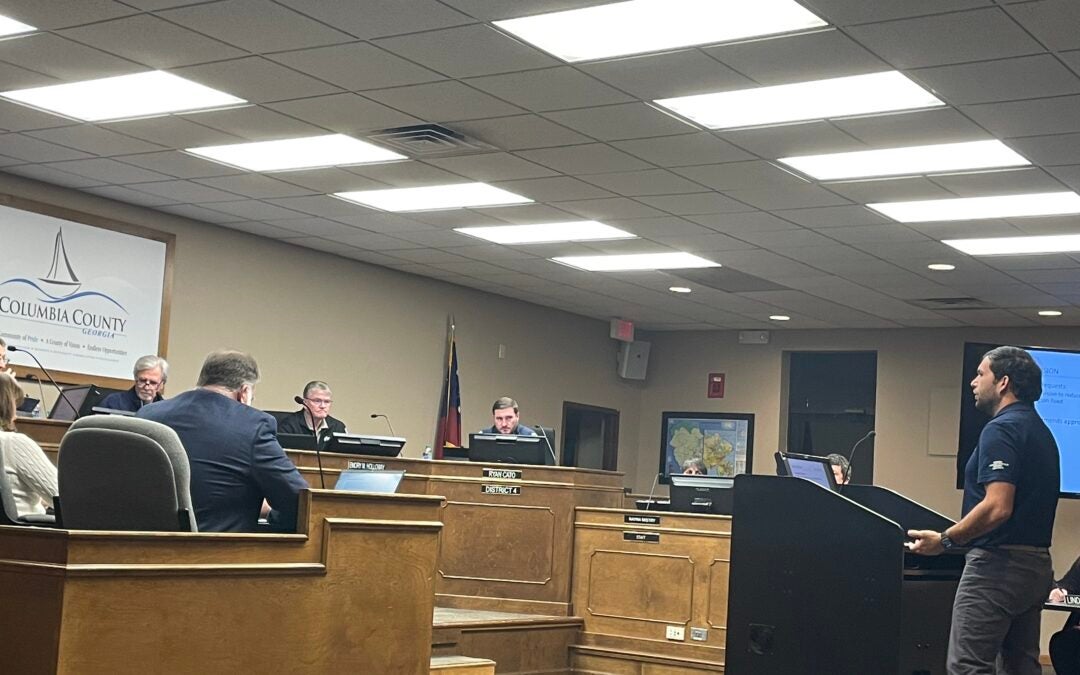Editor’s Note: This week is Media Literacy Week. It’s a week set aside to engage Americans in conversation about using, interpreting, creating and acting appropriately on media content in all its many forms and variations. The Augusta Press will also provide a quiz so readers can assess their media literacy and resources to help readers understand exactly what media literacy is and why it is important for America’s democracy. Coming Tuesday, Oct. 26: a quiz to help you assess your level of media literacy.
Media literacy isn’t a sexy topic, and probably not that common a one, either, but it is an essential skill that everyone needs to possess to participate effectively in America’s democracy.
Media literacy skills are what allow us to traverse today’s media landscape without falling prey to scams and distortion – it’s what keeps us safe from fake news, propaganda and other kinds of manipulative messages that seem to be proliferating at an alarming rate.
Let me give you an example of what I mean. This one is from the very early days of the Internet when, perhaps, students could be forgiven for making this kind of mistake. It happened in the summer of 1996. That previous spring, a piece of legislation called the Telecommunication Act of 1996 had become law, and it included a provision called the Communications Decency Act. That act dealt with electronic obscenity, and it specifically was intended to keep those under 18 from accessing sexually explicit content from the Internet. The Communications Decency Act was controversial because many Americans considered it to be a form of censorship, and they wanted to see Internet speech remain totally free.
I was in my first year of a permanent position at Augusta College in 1996, and I was assigned to teach the Media Law and Ethics course. As part of the spring quarter’s iteration of that course, I dutifully taught about the pending, and then passed Communications Decency Act. A student who had been in my class that spring showed up in one of my summer classes. She bounded into the classroom and gleefully asked, “Did you know the Communications Decency Act has been rescinded?”
I was a little shocked – I was pretty sure I’d have know if the act had been rescinded. I mean, that was my primarily area of expertise, and I kept up pretty well with what the courts and lawmakers were doing with regard to First Amendment issues. So, I replied, “They did? When?”
She excitedly told me that Congress had rescinded the act back in April, which seemed a little odd. It hadn’t been law too much before then. It seemed strange to me that Congress would have responded that quickly to calls for the act to be amended by negating parts of it. So I asked her, “How did you find out?”
“It was on the Internet,” the student innocently answered.
The matter began to become clearer. You have to remember – this was 1996. Computer graphics were in their infancy. Most websites were just text. But, they did have URLs. I asked about the specific day in April and the URL so I could look up the article.
“It was April 1,” the student responded, “and I don’t remember the URL, but it had the word ‘lampoon’ in it.’”
“Ah,” I responded. “So, do you know what the word lampoon means?”
“No,” she replied.
I promised her I’d track down the article after class (we didn’t have classroom computers then).
I did, and as I had begun to suspect in class, the article was a hoax.
[adrotate banner=”20″]
This kind of misunderstanding is less likely to happen today than it was in 1996. Most contemporary Internet users know to be skeptical of any website they don’t visit regularly or haven’t vetted themselves. But, many Americans have trouble recognizing bias or deception in news, marketing ploys embedded into movies or video games (yes, they do that), or phishing attempts to get private information.
Media Literacy Week is sponsored by the National Association for Media Literacy Education. Its focus is educating school children on how to engage with media, how to access media, how to analyze and evaluate media content, how to create and distribute media, and how to respond to media content.
A person’s degree of media literacy is determined by eight elements. One’s ability to think critically and one’s level of understanding of media processes (how the different kinds of media operate, their obligations to audiences, how they craft messages) are key, but so one’s awareness of how media effects individuals and society.
And those effects are not necessarily what we all might assume. Most media consumers believe the media has strong effects on others but not on them. Media scholars call this the “third person effect.” The truth is, our best scientific evidence show that other individuals have more influence on us than media does (we call that the “two-step flow process”).
What we know about how to analyze media content, cultural and communication norms, how media content is produced and how to consume it properly also are components of our media literacy, as is our understanding of the legal, moral and ethical obligations of different kinds of media content. Each medium has its own unofficial rules about how it is supposed to do its work. Knowing about those helps us with analyzing content and knowing how much weight to give it.
Media literacy is especially important for engaging in American public life, especially because of changes not only in how some media, and particularly television news and opinion, function but also because of the development in the last 20 years of a radically different type of media, social media.
As a further introduction to the topic of media literacy as a basis for civic engagement, let me recommend film a Ted Ed video that deals with changes in the news industry: https://www.youtube.com/watch?v=q-Y-z6HmRgI. It offers advice for engaging wisely with the news and will be especially helpful for parents who want to teach their children about media literacy and for older adults who are not as familiar with news on social media.
Debbie Reddin van Tuyll is Editor-in-chief of The Augusta Press. Reach her at debbie@theaugustapress.com.











